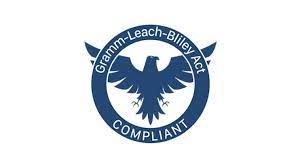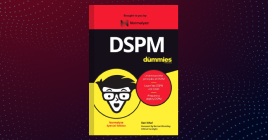Normalyze… Continuous Insights to Support Data Security Compliance

FERPA
- Data Access: 34 CFR § 99.30 – Under what conditions is prior consent required to disclose information? It outlines the conditions under which a school must have written consent from the parent or eligible student in order to release education records.
- Data Retention: Not explicitly covered by FERPA, but schools must follow state regulations and best practices in deciding how long to retain student records.

GDPR
- Data Access: Article 15 – Right of access by the data subject, provides individuals the right to access their personal data and information about how this data is being processed.
- Data Retention: Article 5(1)(e) – Requires that personal data be kept in a form which permits identification of data subjects for no longer than is necessary for the purposes for which the personal data are processed.
 GLBA
GLBA- Data Access: Section 501(b) – Safeguards Rule requires financial institutions to have measures that ensure the security and confidentiality of customer records and information.
- Data Retention: Financial institutions must retain records in compliance with other financial regulations such as the Sarbanes-Oxley Act (Section 802).
- Similarly, PSD2 (Payment Services Directive) in the European Union, and other global banking regulations, focus on the protection of consumer financial information.

HIPAA
- Data Access: Section 164.312(a)(1) – Technical safeguards require procedures to allow only authorized access to PHI.
- Data Retention: Section 164.530(j) – Requires covered entities to retain required documentation for six years from the date of its creation or the date when it last was in effect, whichever is later.
- Data Classification: Requires covered entities to implement policies and procedures that limit access and uses of PHI based on the specific roles of the members of their workforce (Section 164.514).

NERC CIP
- Data Access: CIP-004-6 – Personnel and Training, involves managing access to Critical Cyber Assets.
- Data Classification: While specific data classification is not outlined in NERC CIP, the identification and categorization of Critical Cyber Assets is implied within various requirements.

NIST
- Data Access: NIST SP 800-53 Access Control Family – Guidelines on how organizations can implement access controls to limit and manage the access of users to systems and environments.
- Data Classification: NIST SP 800-60 Vol. I & II – Guide for Mapping Types of Information and Information Systems to Security Categories, provides a structure for classifying federal information and information systems based on the objectives of confidentiality, integrity, and availability.

PCI DSS
- Data Access: Requirement 7 – Restrict access to cardholder data by business need-to-know.
- Data Retention: Requirement 9.6 – Implement a retention policy for cardholder data to ensure it is not stored longer than necessary.
- Data Access and Classification: Companies are expected to maintain rigorous controls over who can access sensitive data and ensure that data is appropriately classified to safeguard against unauthorized access.
- Data Retention: While the rule does not specify data retention periods, it implies that companies must have effective data governance to quickly retrieve and report relevant security incident details.
- Incident disclosure: Material cybersecurity incidents must be disclosed on SEC Form 8-K within four business days, detailing the nature, scope, timing, and impact of the incidents.

Zero Trust Model – Data Pillar
- Least Privilege Access: Implementing strict access controls that ensure individuals have access only to the data necessary for their specific role.
- Anomaly Detection: Continuously monitor data and associated users and resources to identify deviations from normal behavior patterns.
- Continuous Data Governance: Running automated queries to ensure that data is not retained beyond its required lifecycle and deleting data that is no longer necessary.
- Data Classification: Running scans as often as needed against new, unclassified or misclassified data then accurately classifying them based on its sensitivity and the regulations governing it.

